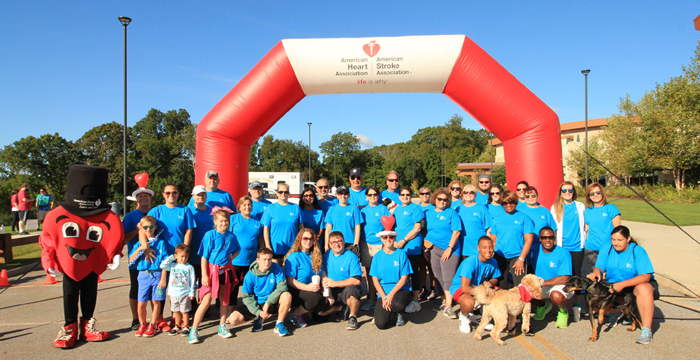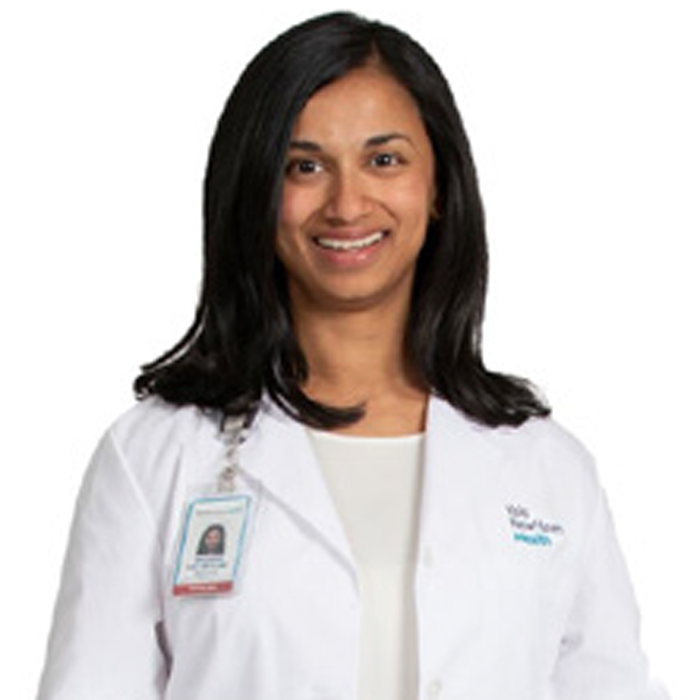-
Services
Featured Specialties
-
Locations
Location Type
-
Patients & Visitors
The 2020 Eastern CT Heart Walk is a series of events you can participate in wherever you are during the four weeks leading up to walk day - Saturday, October 17.

Earlier this year, the American Heart Association (AHA) announced Patrick L. Green, president and CEO, Lawrence + Memorial Hospital, as chair of the 2020 Eastern Connecticut Heart Walk.
As chair, Green is leading the organizational and recruitment efforts in Eastern Connecticut. He has called on thousands of area volunteers, survivors, walkers, and business leaders to step up to reduce disability and death from cardiovascular disease and stroke, the leading cause of death in the United States.
“I am extremely honored to chair the 2020 American Heart Association Heart Walk,” said Green. “Our role as a healthcare organization is to improve the health of the communities we serve. While the coronavirus pandemic has presented additional challenges this year, I hope that we can increase participation by engaging our staff, physicians and the community in this year’s Heart Walk.
In addition, we want to support the AHA’s mission to raise awareness of heart disease and heart health. It is the responsibility of every one of us to become more educated and more aware, not just for our own heart health, but of those we love.”

Not only has the novel coronavirus, also known as COVID-19, presented operational challenges globally, it has also shined a light on the vulnerabilities of those with preexisting conditions. Cardiologist Meghana Rao, MD, of the Heart and Vascular Center at Lawrence + Memorial Hospital explained that while the majority of patients with COVID-19 will not advance to a critical stage, “people with preexisting heart disease, including coronary artery disease, congestive heart failure, diabetes, and high blood pressure, are at a much higher risk for severe cardiovascular complications from COVID-19. While COVID-19 was initially thought to be a primary respiratory illness, all the data thus far shows significant cardiac involvement.”
A first step in educating yourself is knowing the signs. “Early warning symptoms of heart disease are varied and can include chest discomfort, shortness of breath, declining exercise tolerance, fatigue, or fainting spells. It is critically important to pay attention to these signs and contact your healthcare provider immediately. Sudden onset of chest discomfort, shortness of breath or indigestion may herald the beginning of a heart attack and should prompt patients to seek immediate medical attention. These can occur in both men and women. But women can experience a heart attack even without chest pressure.” said Brian Cambi, MD, medical director of the Heart and Vascular Center.
One of the ways you can help reduce your risk for heart disease is to exercise. The Heart Walk lends to the health of the community as walking is one of the safest, least expensive and most sustainable forms of exercise. “Research has shown that walking reduces the risk of cardiovascular events as well as cardiovascular mortality. Benefits have been shown even when walking at a casual pace for a total of five miles per week. As with all exercise, increasing the duration and intensity of exercise, as well as its frequency, will increase its benefit. The goal, however, is the same— to keep moving,” said Dr. Rao.
“There has been a phenomenon of cardiac patients not coming to the hospital despite real cardiac symptoms, including heart attacks, for fear of being infected with COVID-19. It is Meghana Rao, MD crucial that people know the signs of a heart attack or heart failure and know how important it is to get to the hospital without delay. We recommend that all our patients, especially those with heart disease, adhere to physical distancing guidelines, wear a mask when in public, and wash their hands diligently.” – Meghana Rao, MD